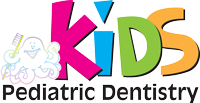29 Nov Importance of Diet in Preventive Dentistry
Nearly 90 percent of all foods have in them sugar and starches that enable the bacteria to produce acids. If bacterial acids active 20 or more minutes they most likely will lead to loss of tooth mineral and to tooth cavities. Other dental diseases that directly related to the diet:
- Dental caries – the leading cause of tooth loss
- Developmental defects of enamel
- Developmental defects of enamel
- Dental erosion
- Periodontal disease.
If children have poor diet, their teeth might not develop properly. It is essential for each child to have proteins, vitamins, minerals (calcium and phosphorous especially).
Essential diet guidelines for dental disease prevention:
- Limit number of snacks to maximum three times a day. Remember that snack should contribute to child’s development – stick to a healthy options like vegetables, yogurt, peanut butter and chocolate milk.
- Try to avoid adding too much cooked starches (bread, pasta, pretzels, potato chips) into child’s diet. These starches take longer to clear the mouth than sugars, so the decay risk is even higher.
- Don’t let your child to “play” with candy during long period of time (for example, licking a lollipop for a long time) or slowly sip sugared drink while watching TV – the acid attack on teeth will be extended, causing a high risk of tooth decay.
- If you can, serve food with sugar or starch with a meal, not as a snack – this way it is safer for teeth.
- Shop smart. Know what in your pantry, and try not to overstock it with sugary and starchy snacks.
- Do not put your baby or young child to bed with a bottle of milk, formula or juice.
- If our child sips soda or chews gum, choose sugar-free products.
- Include cheeses in child’s diet. It’s important because:
- Certain cheeses help to disrupt the development of cavities when eaten alone as a snack or at the end of the meal;
- Cheeses such as aged cheddar, swiss, mozzarella and monterey jack stimulate saliva and help to clean the mouth helping to neutralize the acids.
- The calcium and phosphorous found in cheese help in remineralization of tooth enamel.
Most important, remember that no food is really “bad” for your child if she or he doesn’t snack often, brushes twice a day with fluoride paste and protect their teeth with sealants. Ask our experienced children’s dentist in Allen, Dr. Lisi to help you assess your child’s diet. We truly believe that preventive dentistry is always the best option!
Related links to Dental Prevention:
http://oasisdiscussions.ca/2016/07/25/rdpdd/
http://www.sciencedirect.com/science/article/pii/S1048636424210112
